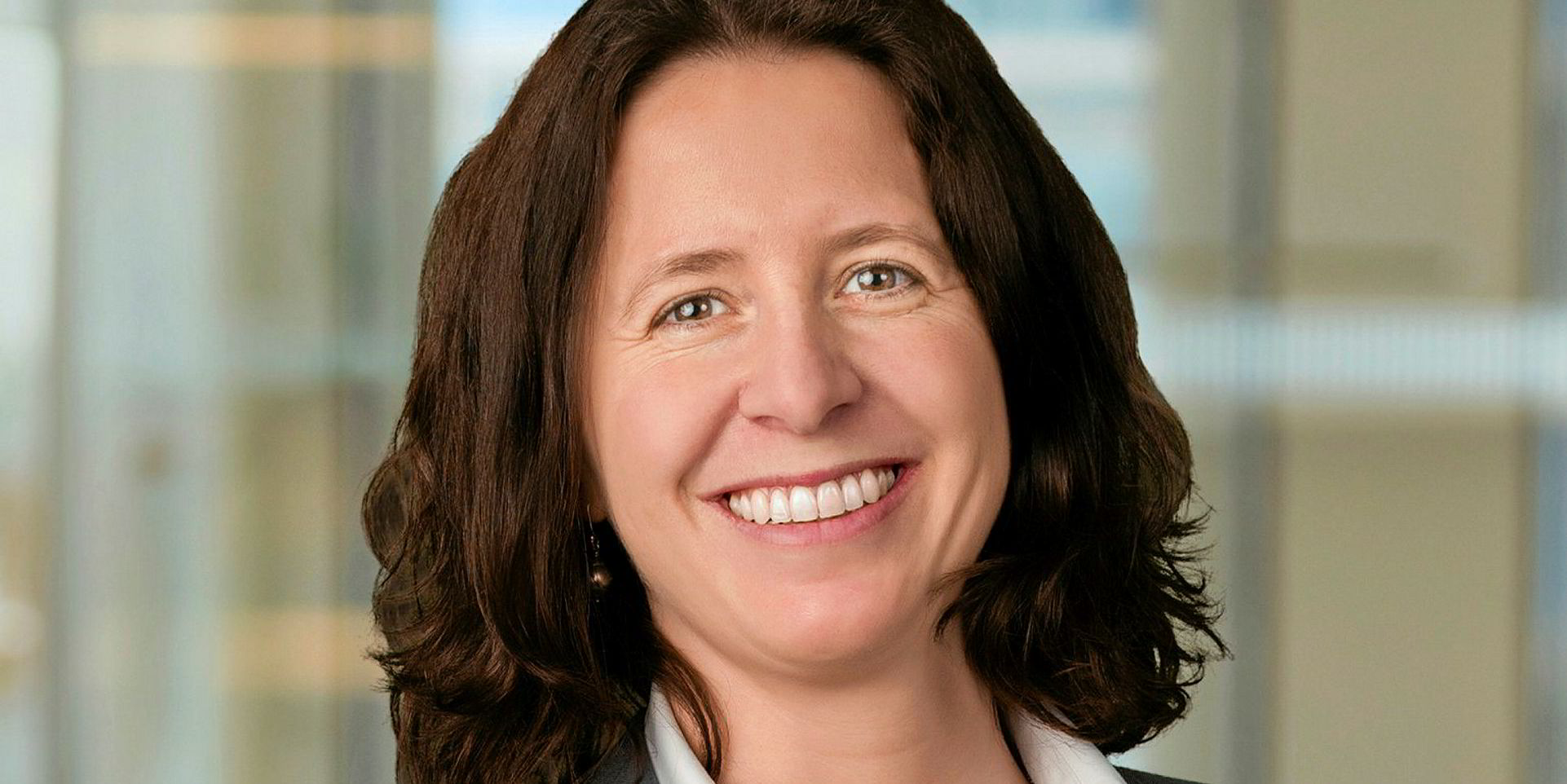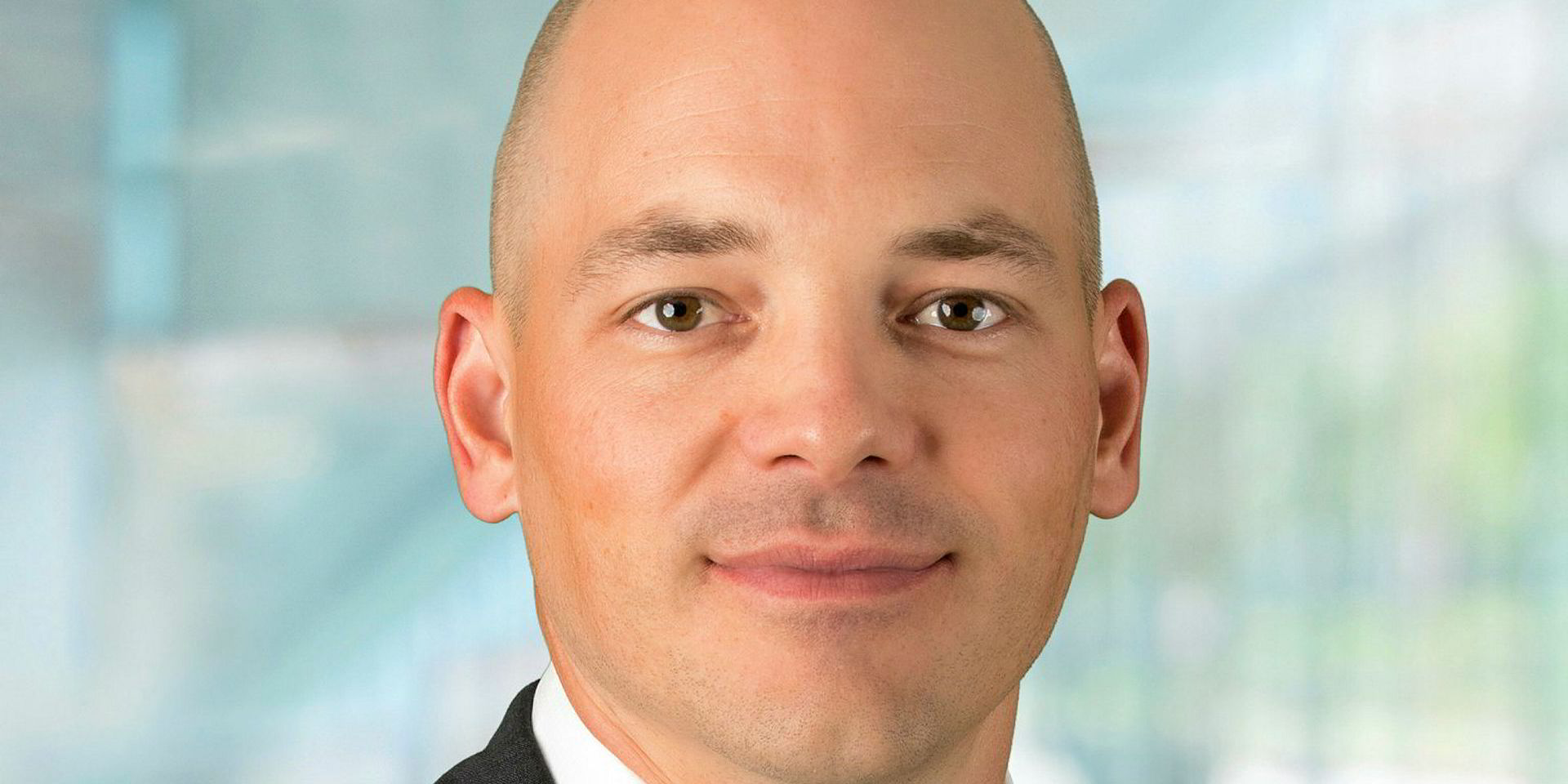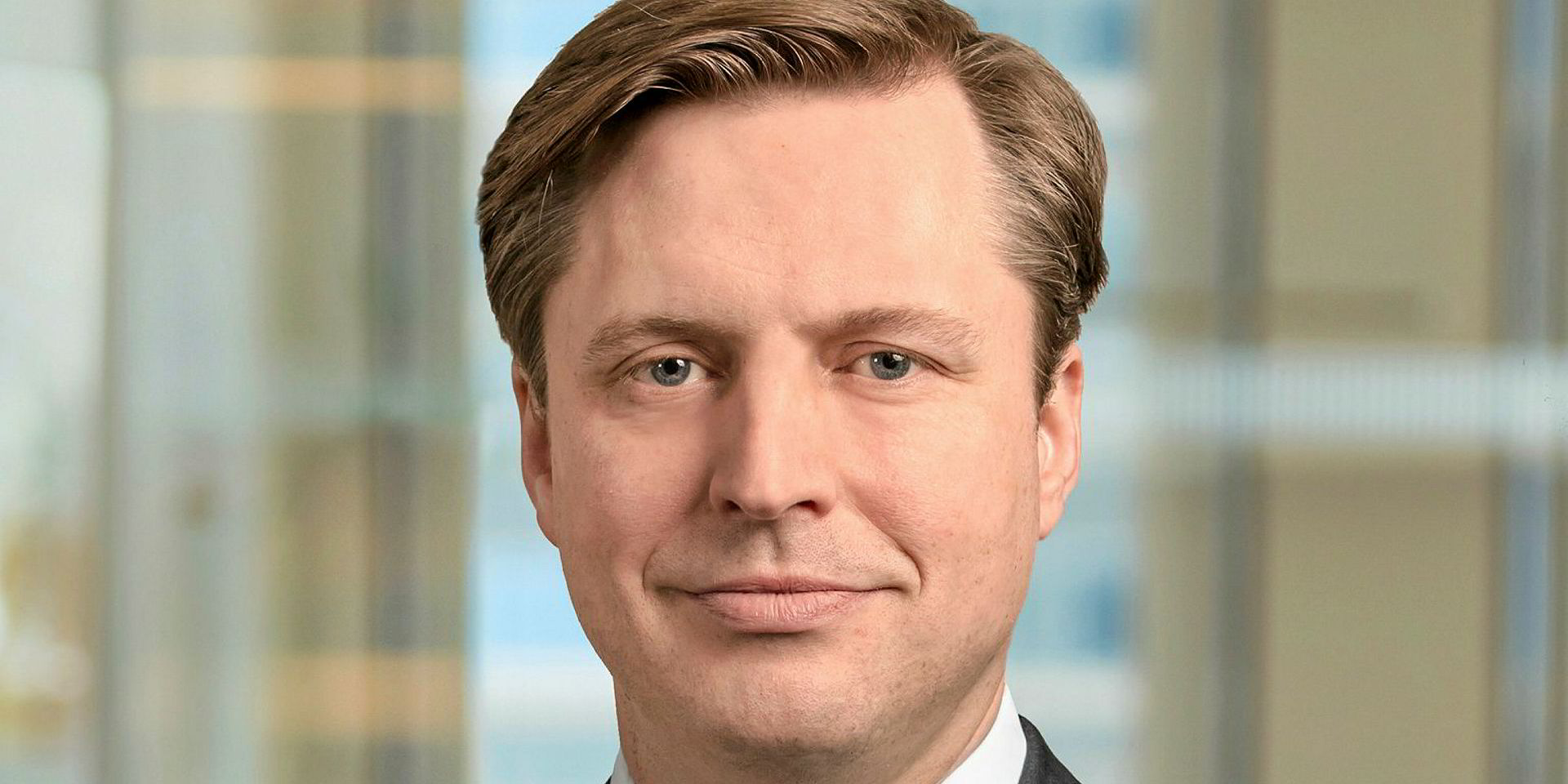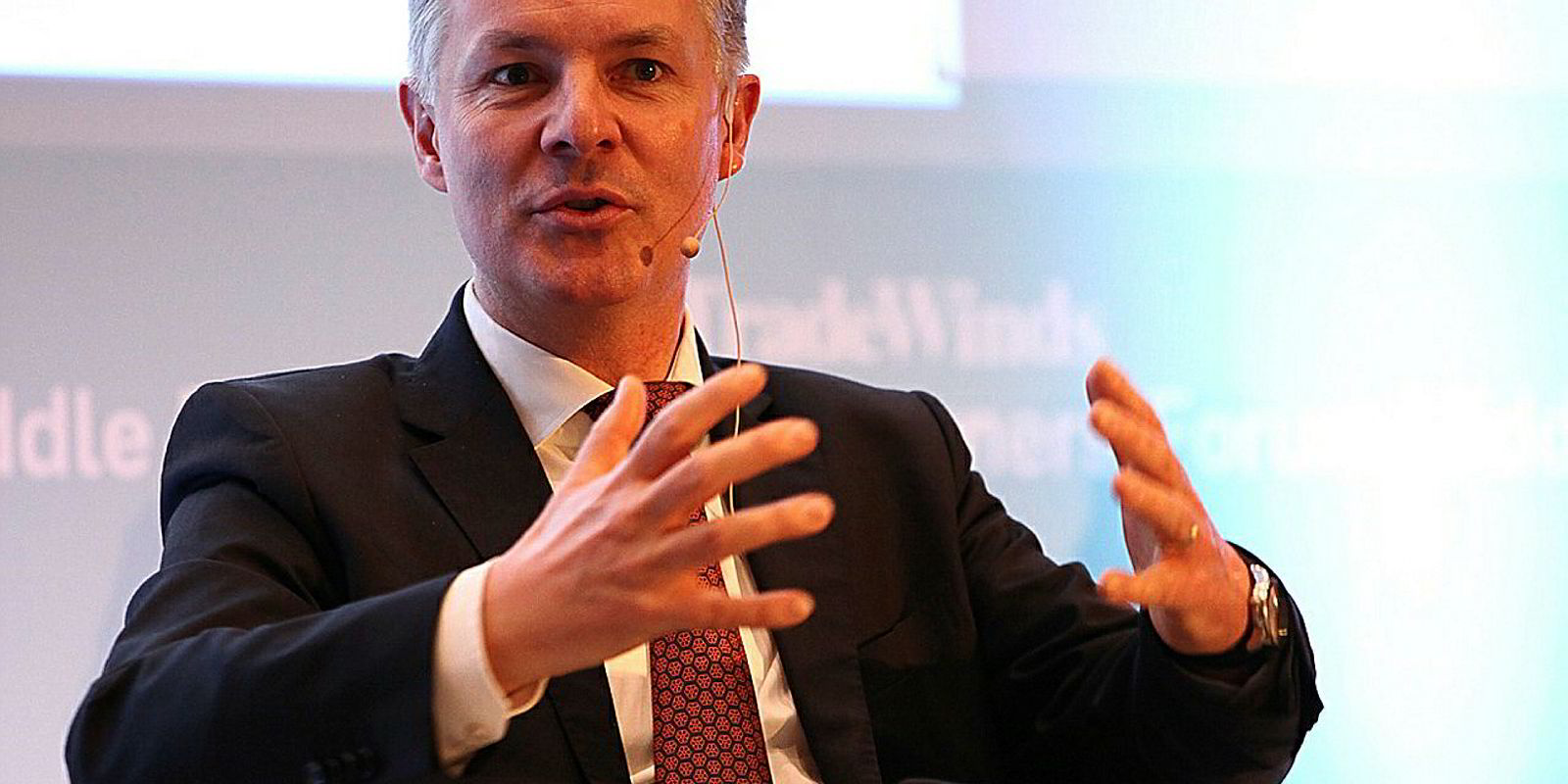Stephen Seymour is a rare commodity in shipping today. Despite swathes of investors withdrawing from the market, the managing director of transportation at Varde Partners is looking to grow the firm’s investment in the industry.
What is more, Varde is seeking to build a long-term position rather than flip a quick profit on shipping’s famous cyclicality.
- 100% partner-owned, led by 16 partners
95+ investment professionals in 14 offices around the globe
- $60bn invested across more than 70 countries in the firm’s 25-year history
“Shipping has been a four-letter word for a lot of investors,” Seymour told TradeWinds at the company’s London office. “We are aware of that. But it’s also what makes it more interesting for us, as having a lot of investors who are reluctant to get involved we think creates conditions for a long-term opportunity.”
Varde, an alternative investment firm formed by three former Cargill staffers in the 1990s and headquartered in Minneapolis, is no stranger to shipping.
Its most notable move historically has been the 2007 takeover of Chembulk. The company was quickly sold and Varde entered a period in which it continued to monitor shipping while not being actively invested.
Structural dislocation
It returned in 2013 and 2014 with eight feeder containership newbuildings and in the past year has made two high-profile moves.

In the summer of 2018, it partnered Oak Hill Advisors to buy a $1bn shipping loan book from Deutsche Bank, and in May this year, it bought a VLCC from Landbridge as part of a leaseback transaction.
The return to the industry was driven by what Seymour calls a structural dislocation in capital available to shipping, which by some estimates has lost $50bn in funding as banks pulled away.
“We have tried to maintain an approach to the market that focuses on structural and funding dislocations, rather than cyclical dynamics,” he said.
• Brad Bauer, partner and deputy CIO, private debt, energy and transportation
• Stephen Seymour, managing director, transportation
• Barbara Richter, director, transportation
• Henry Li, senior analyst, transportation
• Bart Veldhuizen, consultant
“As the theme developed of bank retrenchment and the change systematically in the way the asset class was financed, that is when we said, ‘Hold on, there is a business case here for us’,” explained Seymour, who has been with Varde for a decade and focused on shipping for the past four years.
“We have had investments up and down the capital structure, which gives us a broader perspective. Where we want to stake our claim is as a long-term financing partner for shipowners.”
Seymour agrees with the suggestion that such a statement would be music to a shipowner’s ears at a time when capital is increasingly hard to find, despite a record $2.5trn in cash from private equity investment seeking a home, according to financial data company Preqin.
“We are very much open for business. We have great lunch options here and we are happy to get on the plane to Athens or elsewhere,” he quipped.

Varde, which has $14bn at play in industries from real estate to infrastructure, has invested more than $1bn in shipping in the past 20 years.
It has also bought more than $1.5bn of shipping debt in the secondary loan market and has three VLCCs and the eight feederships under ownership in various structures.
Its shipping business is run out of London with a team of three within its wider transport team.
Reporting alongside Seymour to partner and deputy chief investment officer Brad Bauer are former Tiger Group executive Henry Li and Barbara Richter — who, with a PhD in theoretical chemistry, is described as the “smart one”.
Former DVB Bank shipping boss Bart Veldhuizen is onboard as a consultant, bringing shipping know-how and an industry presence.
Varde is targeting shipping on three fronts. Buying shipping bank debt from motivated sellers has provided its biggest-ticket deals.
While the loans are performing, they typically carry higher loan-to-value ratios and require a proactive position with the borrower, the executive says.
“We come there with a constructive view,” he said. “We are not going there to take the vessels and flood the market, because that is not constructive.”
It is also investing in assets — although it does not see itself as a shipowner — and expanding direct lending to principals, an activity Seymour describes as its next big step as it seeks to help fill the industry-wide funding gap.

“That for us is a long-term opportunity where we can see ourselves as partners for shipowners,” he said.
“Ultimately, we are only ever going to be an investment firm. We do own assets but there is a difference in mentality, so we want to be a financing partner over the long term for shipowners.”
Thirdly, Varde is looking to lend to owners who are no longer on the radar of major shipping banks and it is more flexible in terms of the age of assets.
“When it comes to vessel age, it becomes more expensive for banks to finance as a vessel gets towards 15 years old. We have a bottom-up commercial view when it comes to the age of an asset,” Seymour said.
“For sure there is no one size fits all. We view this as a long-term partnership with borrowers. Success for us is repayment of our loan and financing the next opportunity.”





